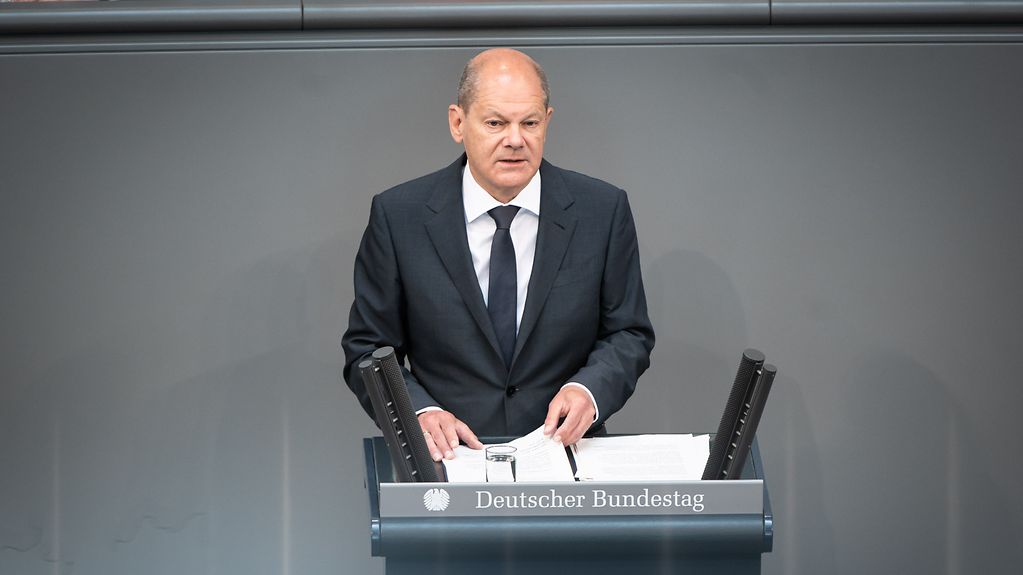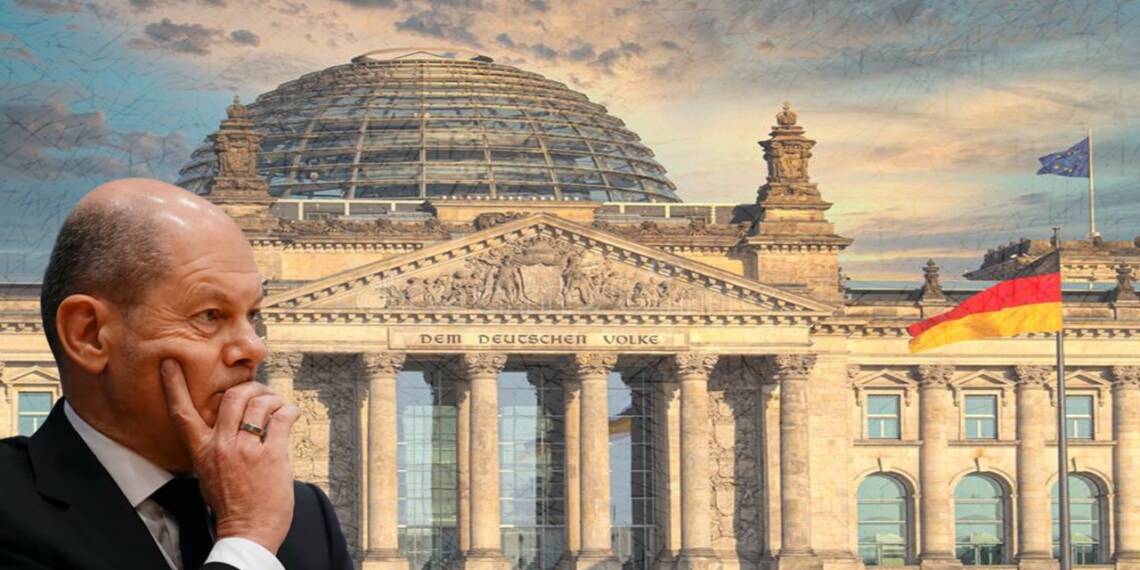Germany new draft law: There are evil plans afoot by the German government. After turning Germany into darkness, both literally and figuratively, Chancellor Olaf Scholz is now aiming to establish an electoral autocracy in Berlin.
A new draft law of Germany would fix the number of lawmakers in the Bundestag at 630 (down from 736), as Pioneer first reported.
“If we don’t change anything, the Bundestag will continue to grow,” Till Steffen, a Green Party lawmaker, told journalists on Monday in Berlin. “We want to safeguard the parliament’s ability to act.”
The German parliament has been growing for years due to the country’s complex voting system. Every German voter has two votes in the parliamentary elections. With the first vote, a candidate from the voter’s regional district is elected. In total there are 299 districts. Whoever receives a majority vote in a district enters the Bundestag.
Another 299 lawmakers enter the Bundestag via a secondary vote for party lists in Germany’s 16 states. The second vote determines the relative strengths of the parties represented in the Bundestag. Votes are then converted into seats in the parliament. As some parties win more seats via the first vote than they are entitled to in comparison to the second vote, further lawmakers are then added in order to maintain the correct ratio of party seats won in the second ballot, which has led to the Bundestag ballooning in size.
The new draft law of Germany would end this. Instead, not all candidates elected in the first vote would actually enter the Bundestag, if their party is entitled to fewer seats through the second vote. To put simply, you might win your constituency but they could still refuse to seat you in the Bundestag. So much for democracy, eh? The decision has been rightly criticized by the opposition parties.
We actually see it as an attack on democracy,” CSU leader Markus Söder, who is also chief minister of the large southern state, said on Monday. The first vote ensures that each region is represented in the Bundestag. With the new draft, that would no longer be guaranteed,” echoed Alexander Hoffmann, Söder’s CSU colleague. “If this draft passes, we will have to have the law reviewed by the Federal Constitutional Court.”
Read More: The Berlin Bottleneck: How Germany’s Roadblocks are Hurting the EU’s Progress
You see, despite the opposition’s evident desire to stop the election change, the German left-wing administration led by the Greens and Socialists wants to pass it. Will the Orientalist EUs and V-Dems of the globe write a report expressing concern about the Rule of Law like they did for countries like India in the past? The main distinction is that while we have conclusive empirical proof of the demise of normative democratic values in Germany, there is no comparable proof against countries like India. Nevertheless, the EU remains silent on one of its own while we witness thousands of bogus reports against India. One needs to talk about the integrity of such organisations.

Why would the German government come up with such an anti-democratic law? Let me explain. You see, Germany’s main opposition party, Christian Democratic Union, has been making significant electoral strides. Recently, it celebrated its victory in a Berlin state election rerun, made necessary by serious voting glitches in 2021, arguing that the result shows the party can appeal to voters in urban areas with center-right policies that include tough talk on immigration. The Christian Democratic Union of former Chancellor Angela Merkel has struggled for years with declining support in major cities and last governed the capital in 2001. However, the party came first in the recent state election with 28.2% of the vote, gaining 10 percentage points as the three parties that made up the leftist regional government lost supporters.
“This re-election result shows that the CDU can win in big German cities,” the party’s main candidate, Kai Wegner, told reporters. At the same time, both the center-left Social Democrats and the environmentalist Greens received a mere 18.4% of the vote.
These results have boosted the confidence of the conservatives for the national elections. This is precisely what has made German Chancellor Scholz anxious and prompted him to stymie democracy in Germany. Instead of engaging the Conservatives in a genuine fight, Scholz is attempting to rig the electoral process in his favour. Yet, dear Chancellor, no amount of bluster could alter the truth that the German people have been furiously irritated ever since you assumed control of Berlin. And why would they not? Under Scholz, Germany has become a real-life nightmare with severe food and energy shortages.
Moreover, the German chancellor is one of the most unpopular leaders of Germany. If his approval ratings are to be mentioned, the German chancellor has a 33% approval rating which is almost half of what he used to have prior to the Ukraine war. Scholz is so unpopular that the leader was also heckled by Germans over protests for cost of living. His coalition partners’ conditions are also similar. Robert Habeck was Germany’s most popular leader once, now, his own partymen are in no favor to support him.
Reality is looking grim for Scholz and his party. He knows he will never come to power with popular support, so he decided to alter the democratic process itself. The hunger for power makes politicians do things, that the country has to pay price for, and Olaf Scholz is a living example of it. All things considered, the Chancellor has no longer any support from the German people. Regardless of the government’s efforts to enact unconstitutional legislation and rig the elections, no amount of such unethical interference could enable Scholz to win the election without the backing of the popular vote.








